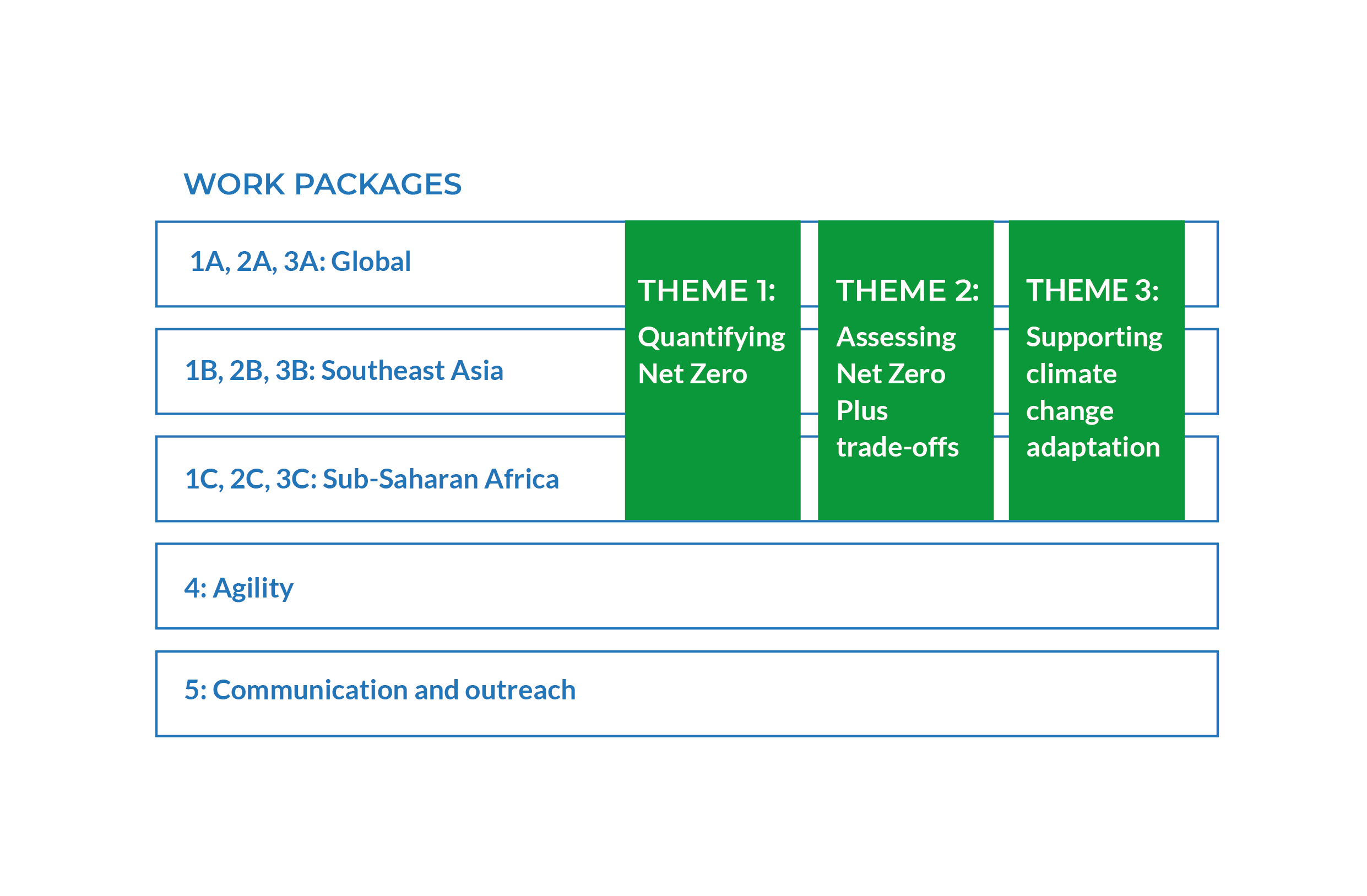The International Science for Net Zero Plus programme comprises nine, individual but interlinked, projects, nested within three thematic areas and across either global, south east Asia or sub-saharan Africa.

Each project is delivering new science, making data and tools accessible to users, and building and strengthening networks and initiatives around Net Zero Plus. Projects will build on existing relationships with partners in their respective scales, as well as wider networks relevant to helping improved decision-making around Net Zero Plus plans and adaptation to climate change risks.
Integration across scales and themes is an integral part of the programme. The outputs and outcomes from a specific scale or region will inform and be informed by other scales and regions as relevant. Lessons learned from this integration will be transferable to other regions around the globe.
